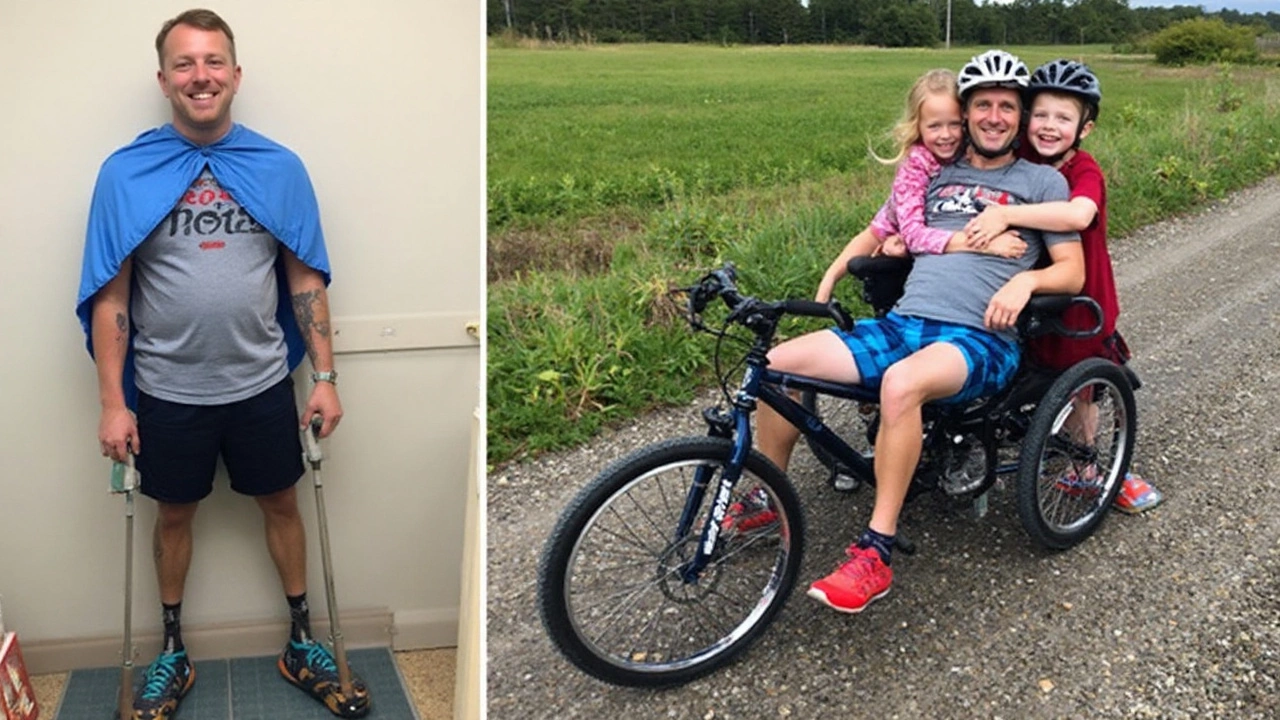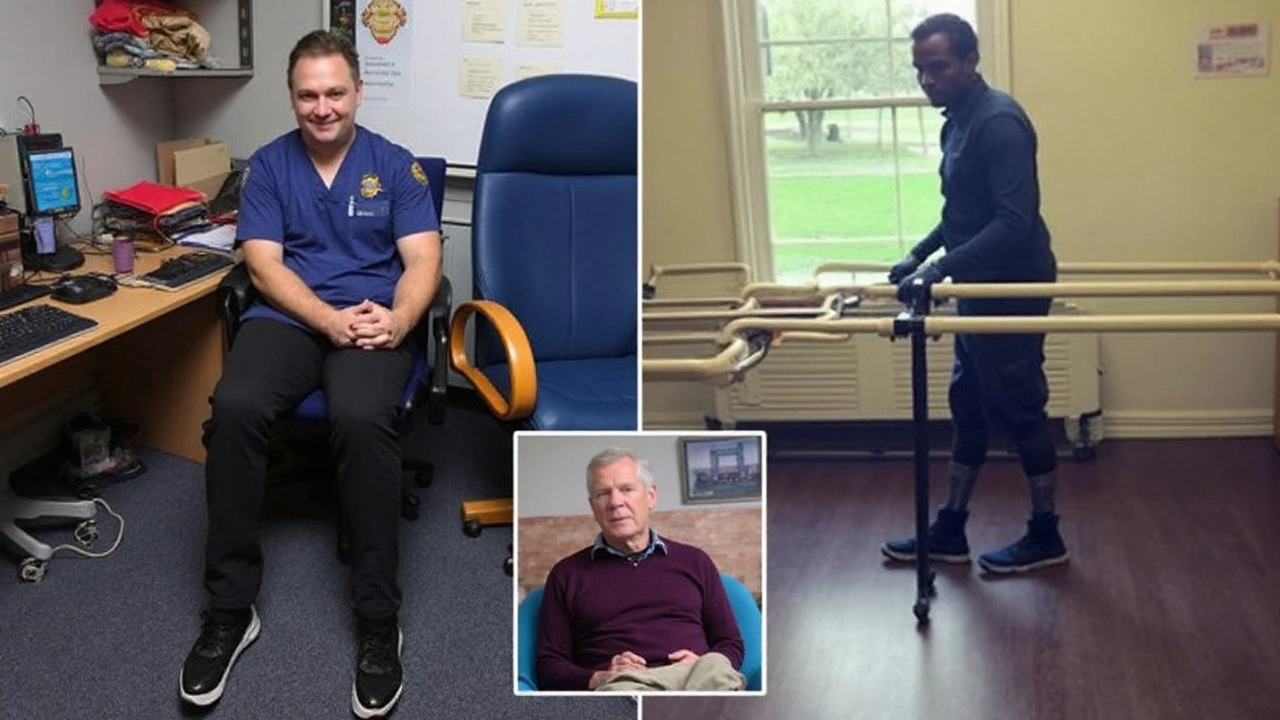Insurance Fraud case: Surgeon accused of self-amputation and ties to 'Eunuch Maker' network
A surgeon, a double amputation, and a fraud case that stunned a courtroom
A veteran vascular surgeon is at the center of an extraordinary criminal case after prosecutors alleged he amputated both his own legs to cash in on nearly £500,000 in insurance fraud. Neil Hopper, 49, appeared before Bodmin Magistrates' Court charged with two counts of fraud by false representation and separate counts linked to encouraging grievous bodily harm. He has not entered a plea and is currently remanded in custody pending his next appearance.
The fraud counts focus on a three-week window in June 2019. Investigators say Hopper told two insurers that his amputations were the unavoidable result of sepsis, not self-inflicted injuries. The claims were substantial: £235,622 to Arriva Group and £231,031 to Old Mutual. Prosecutors allege those declarations were dishonest and part of a scheme to trigger payout clauses tied to catastrophic injury.
Devon and Cornwall Police spent two and a half years on the case, combing through medical records, communications, and financial documents before charging Hopper. At this stage, the case has been aired in a magistrates' court, which typically handles early hearings before sending serious matters to the Crown Court. The court gave no timetable in open session, but cases of this complexity usually take months to reach trial.
What sets this file apart is the second strand of allegations. Between August 2018 and December 2020, prosecutors claim Hopper purchased videos from a site known online as 'The Eunuch Maker' that depicted extreme amputations. He’s accused of encouraging the group’s figurehead, Marius Gustavson, to remove body parts from others—conduct that forms the basis for charges of encouraging grievous bodily harm. The court did not hear any evidence of the alleged acts being carried out on Hopper’s patients.
Gustavson is a name that will be familiar to anyone who followed recent prosecutions over illicit extreme body modification in the UK. He has been convicted in London for leading a network that carried out illegal castrations and other severe procedures, some broadcast online. The Crown will argue this context matters: that doctors, like any other citizen, can face criminal liability for encouraging serious harm outside clinical settings.

Patient safety, the hospital response, and what the law says
Hopper worked as a vascular surgeon at the Royal Cornwall Hospitals NHS Trust from 2013 until his suspension in March 2023. The trust says internal checks have found no evidence that patients were placed at risk under his care. Even so, the hospital has opened a dedicated hotline for anyone worried about historic treatment. Former patients can call 01872 25 2793 or email [email protected]. The trust says a team is fielding queries and will support any independent reviews if needed.
A vascular surgeon treats serious blood vessel conditions—blocked arteries, aneurysms, limb ischemia—often operating under urgent, high-stakes conditions. That detail matters here because prosecutors claim the expertise that saves lives in theatre was allegedly misused outside the clinical setting. The trust has referred the matter to national regulators. The General Medical Council typically moves quickly in such cases, with an interim orders tribunal able to suspend or restrict practice while criminal proceedings are active. A conviction could trigger a separate fitness-to-practice process that may remove a doctor from the medical register.
On the alleged insurance deception, the charge—fraud by false representation—is brought under the Fraud Act 2006. It’s used when someone is accused of lying to obtain a financial advantage. The statutory maximum for that offence is 10 years’ imprisonment, though outcomes depend on the facts and a defendant’s record. The counts linked to encouraging serious harm fall under serious crime legislation and, if proven alongside intent to cause grievous bodily harm, can carry very heavy sentences. Hopper remains innocent unless and until proven guilty.
Sepsis is central to the narrative. It is a life-threatening reaction to infection that can spiral into septic shock, organ failure, and tissue death. In the worst cases it can lead to amputations to save a life. Insurers, and later courts, usually scrutinize such claims closely. That can involve independent medical examinations, surgery notes, tissue viability reports, and timelines of care to establish whether the medical picture lines up with what was claimed. Investigators will also look at digital footprints—messages, searches, and purchases—that could support or undermine either side’s account.
The reference to 'The Eunuch Maker' opens up a broader issue: the growth of online communities around extreme body modification. Most cosmetic and body-mod procedures in the UK sit within clear legal boundaries and involve consent, licensed premises, and proper aftercare. What prosecutors describe here is different—amputations and castrations carried out outside regulated medicine, sometimes filmed and traded. The Metropolitan Police have said in past cases that the digital trail—payments, chat logs, and video files—was crucial to securing convictions.
Back in Cornwall, the next steps are procedural but important. Magistrates typically decide custody and reporting conditions at this stage and send serious cases up to the Crown Court. A plea hearing will follow, then a trial date if the case is contested. Pre-trial rulings may decide what the jury can hear about digital evidence, medical records, and prior conduct. The court could also consider expert testimony on sepsis, surgical technique, and the psychology of extreme body modification communities.
For patients and staff at the trust, the focus is practical: check records, answer questions, and keep services running. The hospital says it will contact patients directly if any concerns emerge from its review. Regulators, meanwhile, will track the criminal case while managing the professional aspects in parallel. However this ends, the case has already forced a rare public examination of where medical expertise ends, personal choices begin, and the law steps in.






